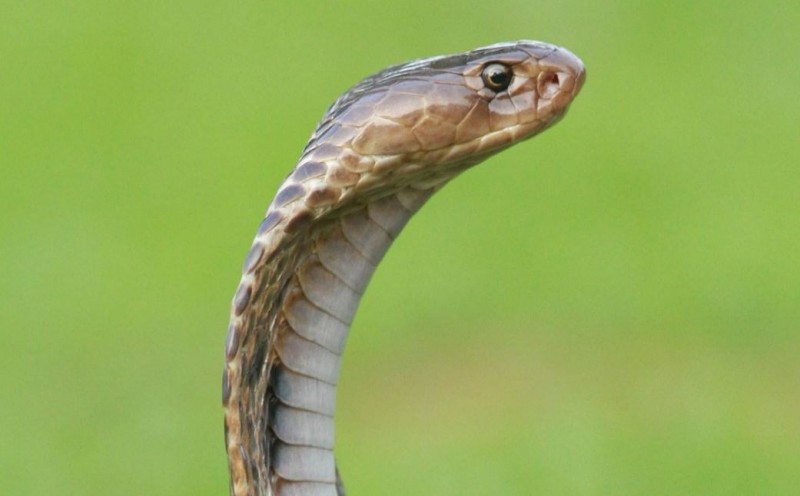
During the monsoon season, the risk of encountering poisonous snakes increases as they emerge from their hiding places. Snake bites can be life-threatening, but quick and appropriate action can significantly improve the chances of survival. Here’s a detailed guide on what to do immediately after a poisonous snake bite:
Recognizing the Symptoms of a Snake Bite
Understanding the symptoms of a snake bite is crucial for prompt action:
Pain and Swelling: The area around the bite often becomes painful and swollen. This is one of the earliest signs of envenomation.
Muscle Rigidity and Tremors: Victims may experience muscle stiffness and uncontrollable shivering.
Nausea and Vomiting: These symptoms can develop quickly after being bitten.
Skin Color Changes: The bite area might show color changes, indicating the spread of venom.
Low Blood Pressure and Fainting: A drop in blood pressure and symptoms of dizziness or fainting are common.
Excessive Sweating and Weakness: Victims might sweat profusely and feel extremely weak or lethargic.
Immediate First Aid Steps
Here’s what you should do immediately after a poisonous snake bite:
Stay Calm and Immobilize the Affected Area:
Calm the Victim: Anxiety can increase the spread of venom. Reassure the victim and keep them as calm as possible.
Keep the Affected Limb Still: Immobilize the bitten limb to prevent the spread of venom through the bloodstream. Use a splint or a bandage if necessary.
Avoid Certain Actions:
Do Not Cut the Wound: Avoid cutting the bite area or attempting to suck out the venom.
Do Not Apply Ice: Ice can worsen tissue damage and is not recommended for snake bites.
Do Not Use a Tourniquet: A tourniquet can restrict blood flow and lead to more severe complications.
Apply Basic First Aid:
Keep the Bite Below Heart Level: If possible, keep the affected limb lower than the heart to slow down the spread of venom.
Clean the Wound: Gently clean the bite area with clean water. Do not use harsh chemicals or disinfectants.
Administer Home Remedies (as a temporary measure until medical help is available):
Use Ghee for Vomiting: Administering ghee can induce vomiting, which might help remove some venom from the stomach. However, this should not replace professional medical treatment.
Apply Contola Paste: If available, apply a paste of Contola (a local herb) to the bite area. This may help reduce the effects of venom and prevent infection.
Garlic and Honey Paste: A mixture of garlic paste and honey can be applied to the bite area as a traditional remedy, but it is not a substitute for medical treatment.
Seek Medical Attention Immediately
The most critical step is to seek professional medical help as quickly as possible. Here’s what to do:
Transport to the Hospital: Get the victim to the nearest hospital or medical facility without delay.
Do Not Attempt to Treat the Wound at Home: Professional medical treatment is essential for administering anti-venom and managing the effects of the bite.
Allow the Wound to Bleed: If the bite area is bleeding, do not try to stop the bleeding. Let it flow as this can help remove some venom.
Medical Treatment
In the hospital, the following treatments will be administered:
Anti-Venom Injection: This is the most effective treatment for neutralizing the snake venom. The sooner it is administered, the better the outcome.
Supportive Care: The medical team will provide supportive care, including fluids, pain management, and monitoring of vital signs.
Wound Care: Proper care will be given to the bite wound to prevent infection and further complications.
Preventive Measures
To minimize the risk of snake bites:
Be Cautious During Rainy Season: Stay alert while walking in areas prone to snake sightings.
Wear Protective Clothing: Use boots and long pants when walking in areas where snakes are common.
Keep Homes and Gardens Clean: Remove potential snake hiding spots around your home.
A poisonous snake bite is a serious medical emergency. Immediate and correct first aid can make a significant difference, but professional medical treatment is crucial for survival. By following these steps and seeking help promptly, you can enhance the chances of recovery and save a life.
6 Quick and Healthy Breakfast Ideas for a Busy Morning
National Milk Chocolate Day – July 28! Indulge in These Irresistible Milk Chocolates